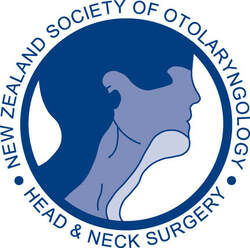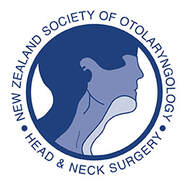Dr Johan Fagan Johan Fagan is chairman of Otolaryngology at the University of Cape Town, South Africa. He completed fellowships in Head and Neck Surgery and Otology/Neurotology at the University of Pittsburgh. He spent much of his career advancing otolaryngology in Africa and developing countries, founding the African Head and Neck Society, and established fellowship training programmes at the University of Cape Town for African surgeons. He self-publishes two open access surgical textbooks and has authored >250 peer reviewed articles and book chapters. He was awarded an IFOS gold medal and the Nikhil J. Bhatt MD International Public Service Award by the AAO-HNSF for his contributions to Otolaryngology.
|
Initiatives for Open Access for Educational and Training Resources in ORL
Lower- and middle-income countries (LMIC) are home to 85% of the world population, and account for 80% of disabling hearing loss, 70% of head and neck cancers, and 80% of head and neck cancer related deaths. Despite this enormous burden of disease, LMICs have a severe shortage of ENT/HN surgeons. Improving access to care in LMICs through training more ENTs is therefore the key to improving ENT outcomes globally. Yet textbooks and conferences are unaffordable for trainees and specialists in LMICs, and international clinical practice guidelines are often inappropriate for low resource settings.
In this lecture I shall share my experience with open access publishing of two textbooks, The Open Access Atlas of Otolaryngology, Head and Neck Operative Surgery, and The Open Access Guide to Audiology and Hearing Aids for Otolaryngologists, chapters of which have been downloaded almost 4m times; the African Head and Neck Society virtual tumour boards; and the web-based open access AfHNS Guidelines for Head & Neck Cancers in Developing Countries and Limited Resource Settings.
Lower- and middle-income countries (LMIC) are home to 85% of the world population, and account for 80% of disabling hearing loss, 70% of head and neck cancers, and 80% of head and neck cancer related deaths. Despite this enormous burden of disease, LMICs have a severe shortage of ENT/HN surgeons. Improving access to care in LMICs through training more ENTs is therefore the key to improving ENT outcomes globally. Yet textbooks and conferences are unaffordable for trainees and specialists in LMICs, and international clinical practice guidelines are often inappropriate for low resource settings.
In this lecture I shall share my experience with open access publishing of two textbooks, The Open Access Atlas of Otolaryngology, Head and Neck Operative Surgery, and The Open Access Guide to Audiology and Hearing Aids for Otolaryngologists, chapters of which have been downloaded almost 4m times; the African Head and Neck Society virtual tumour boards; and the web-based open access AfHNS Guidelines for Head & Neck Cancers in Developing Countries and Limited Resource Settings.
Laryngeal Cancer: Managing the Difficult Airway
Safely managing the difficult airway in patients presenting with laryngeal cancer requires clinical judgement, experience, skill and close teamwork between ENTs and anaesthetists. Yet ENT and anaesthetic trainees are often responsible for managing such cases presenting out of working hours. At the University of Cape Town, we perform an emergency tracheostomy for advanced laryngeal cancer with airway compromise about every 2 weeks. In this lecture I shall be sharing our approach to managing the difficult airway in laryngeal cancers based on our institutional experience.
Safely managing the difficult airway in patients presenting with laryngeal cancer requires clinical judgement, experience, skill and close teamwork between ENTs and anaesthetists. Yet ENT and anaesthetic trainees are often responsible for managing such cases presenting out of working hours. At the University of Cape Town, we perform an emergency tracheostomy for advanced laryngeal cancer with airway compromise about every 2 weeks. In this lecture I shall be sharing our approach to managing the difficult airway in laryngeal cancers based on our institutional experience.





